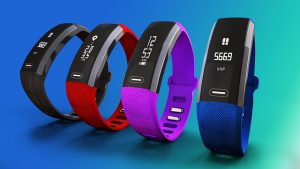Fitbit Is The Latest Tool in Health Research
 The Precision Medicine Initiative, a long-term research endeavor involving the National Institutes of Health (NIH) and multiple other research centers, aims to understand how a person’s genetics, environment, and lifestyle can help determine the best way to prevent or treat disease. Last year, the National Institutes of Health (NIH) changed the initiative’s name to the warmer and fuzzier, All of Us, and began testing for a 2018 launch in hopes of achieving its goal of gaining anonymous health information from one million Americans.
The Precision Medicine Initiative, a long-term research endeavor involving the National Institutes of Health (NIH) and multiple other research centers, aims to understand how a person’s genetics, environment, and lifestyle can help determine the best way to prevent or treat disease. Last year, the National Institutes of Health (NIH) changed the initiative’s name to the warmer and fuzzier, All of Us, and began testing for a 2018 launch in hopes of achieving its goal of gaining anonymous health information from one million Americans.
Fitbit is the first wearable device company to get the green light to participate in the study. The key to the study is figuring out how health is impacted outside of a clinical setting. In its current iteration, the study will run about a year with Fitbits, and that information will inform how wearable fitness trackers will be used in the program moving forward.
The All of Us program is launching in stages, with a national rollout anticipated in Spring 2018. Following launch, the NIH plans to make continuous improvements and updates to the program based on participant feedback, emerging scientific opportunities, and technological advances.
The National Institutes of Heath is also spending more than $200,000 giving Fitbits to depressed alcoholic women. The “low-cost” intervention is being led by researchers at Butler Hospital in Rhode Island, who hypothesize that women’s emotional state causes them to drink to cope.
Alcohol use disorders are the third leading preventable cause of death in the U.S. and are associated with significant economic burden and health-related negative consequences. Women who experience alcohol use disorders experience more significant negative health consequences of alcohol use and are more likely to relapse. Providing Fitbits to the women will enable them to use the “in the moment” method to cope with negative emotional states and alcohol craving during early recovery.
Corporations are using Fitbits to inspire employees to be healthier. Employers such as Target, BP, Bank of America, IBM, Kimberly-Clark, and Time Warner are offering employees free or reduced cost Fitbits as part of corporate wellness programs.
Initial research done by corporations using devices is showing promise. Those who use trackers log more steps than those who don’t. Studies are also challenging the notion that users lose interest in their tracker after about 6 months. IBM employees using trackers during a fitness challenge were still “eager and active” and wearing their device, long after the challenge ended.

















